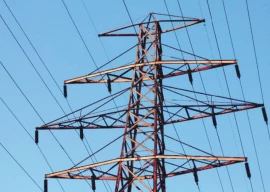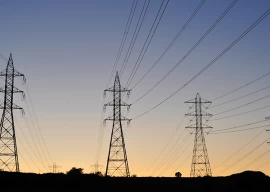1722236723-0/sukuk445-(1)1722236723-0.jpg)
Infrastructure development is a crucial driver of economic growth, prosperity, and improved living standards. However, funding infrastructure projects can be a significant challenge, especially in developing economies. Governments worldwide constantly seek efficient and sustainable funding mechanisms to support these large-scale projects. This is where Sukuk, a Shariah-compliant financial instrument, comes into play. Sukuk has emerged as a vital tool for financing infrastructure projects, offering numerous benefits to governments, investors, and society as a whole.
This article explores the importance of Sukuk in infrastructure development, particularly for government-funded projects, and discusses why Sukuk are often considered superior to traditional bonds.
According to S&P, global Sukuk issuance is projected to reach approximately $170 billion in 2024, compared to $168.4 billion in 2023 and $179.4 billion in 2022.
Pakistan entered the global Sukuk market in 2005 with the first Sukuk issuance amounting to $600 million. Over the years, Pakistan has successfully issued Ijarah-based Sukuk worth $4.6 billion in the global markets creating a footprint for Pakistan. On the domestic front, the domestic Sukuk programme was launched in 2008 and till June 2024, the government has issued Ijarah Sukuk over Rs6.2 trillion. During 2023, the sovereign Sukuk witnessed record growth with the issuance of Rs1.77 trillion. However, at present the focus of sovereign Sukuk is to replace the costly interest-based borrowing as part of the conversion of the financial system and to meet the budgetary requirements of the government.
Sukuk are financial instruments that comply with Islamic commercial law and offer a Sharia-compliant alternative for generating liquidity, project financing, and government funding needs. Unlike conventional bonds, a Sukuk does not represent an interest-based loan but it is closer to a share in nature and it generally represents ownership of an asset or an investment activity. With the concepts of ownership risk or risk sharing – the Sukuk holders are entitled to economic returns in terms of rental income or profits derived from the underlying business activity.
Sukuk’s asset-backed nature can directly contribute to real economic growth and infrastructure development. Funding infrastructure projects, such as dams, airports, solar parks, technology parks, railway tracks, and hospitals, provide secure financing for essential ventures. It attracts financing for infrastructure development and can be targeted towards retail investors at Pakistan Stock Exchange (PSX), promoting financial inclusion and Islamic capital market development.
Initiatives like Green and Sustainable Development Goals (SDG) link Sukuk with global sustainability efforts and socially responsible investments. By utilising innovative Sukuk structures, the government can strategically address its infrastructure development needs which will lead to economic growth and employment generation while adhering to Islamic principles.
Effectively using Sukuk unleashes numerous economic benefits to society, including job creation and increased economic activity. Sukuk-funded infrastructure projects create employment opportunities, contributing to poverty reduction and improved living standards. Additionally, it stimulates economic activity, driving growth and prosperity.
Sukuk-funded infrastructure projects also enhance connectivity, facilitating the movement of goods, services, and people. Moreover, these projects improve living standards by providing access to essential services like electricity, water, and transportation, thereby enhancing the quality of life.
We can find many examples at the global level where Sukuk are used to finance infrastructure projects and create overall value for the economy
In 2018, Indonesia issued a $1.25 billion Green Sukuk to finance renewable energy projects, including geothermal and solar power plants. In 2019, Turkey issued a $300 million Green Sukuk to finance the construction of a wind power plant.
Similarly, in 2020, Malaysia issued a $1.3 billion Green Sukuk to finance sustainable infrastructure projects, including green buildings, energy-efficient buildings, and sustainable water management systems. In the same year, Saudi Arabia also issued a $1.5 billion ESG Sukuk to finance the construction of a water desalination plant, promoting water conservation and sustainable development.
Malaysia’s $1.5 billion Sukuk for High-Speed Rail is another classic example of using Sukuk for economic development. The Sukuk is issued to finance the Kuala Lumpur-Singapore High-Speed Rail project. This project will reduce travel time between the two cities to just 90 minutes.
On the domestic front, in 2016 Neelum Jhelum Hydropower Company (Private) Limited issued a 10-year Sukuk worth Rs100 billion to finance the Neelum Jhelum Hydropower project.
The preference of Sukuk for infrastructure development also arises due to the alignment with ethical and religious principles. As Sukuk adheres to Islamic finance principles, prohibiting interest (riba) and ensuring that investments are backed by tangible assets. This alignment attracts a broader range of investors, including those who seek ethical investment opportunities. For Muslim-majority countries, Sukuk provides a Sharia-compliant investment option, making them a preferred choice for financing government infrastructure projects.
Secondly, Sukuk also offers wider appeal to both Islamic and conventional investors, thus broadening the investor base and increasing the pool of available capital. This diverse investor interest can lead to lower financing costs and improved funding conditions for infrastructure projects. Additionally, the growing popularity of Islamic finance globally means that Sukuk can attract international investors, further enhancing capital availability.
Thirdly, a key feature of Sukuk is its risk-sharing nature. Investors in Sukuk share the risks and rewards of the underlying assets. This aspect encourages more prudent and responsible project management, as both the issuer and investors have a vested interest in the project’s success. The asset-backing requirement of Sukuk also ensures that the funds are used for specific, tangible projects, enhancing transparency and reducing the likelihood of misallocation.
Fourthly, Sukuk can contribute to economic stability by promoting long-term investments in infrastructure. These investments create jobs, stimulate economic growth, and improve public services.
For government-funded projects, Sukuk can relieve budgetary pressures. Instead of financing projects through taxes or conventional debt, governments can leverage Sukuk to attract private sector investment based on partnership-based contracts and profit-sharing modes. This approach allows governments to undertake more infrastructure projects without overburdening their fiscal budgets.
THE writer IS DIRECTOR OF IBA’S CENTRE OF EXCELLENCE IN ISLAMIC FINANCE

1722237119-0/unepmployment-(1)1722237119-0-270x192.webp)


1722236723-0/sukuk445-(1)1722236723-0-270x192.webp)

1721883960-0/BeFunky-collage]-(20)1721883960-0-270x192.webp)












COMMENTS
Comments are moderated and generally will be posted if they are on-topic and not abusive.
For more information, please see our Comments FAQ